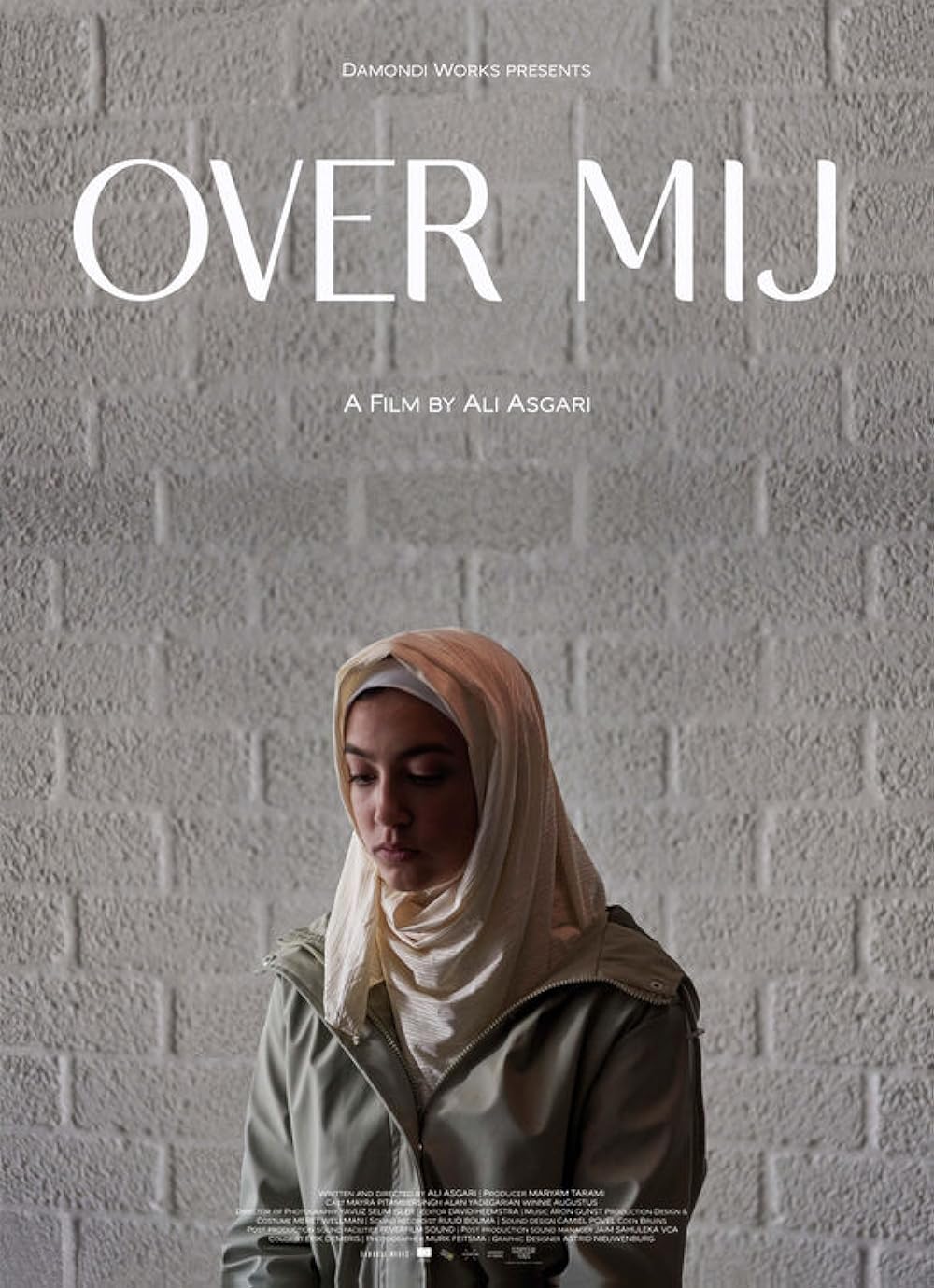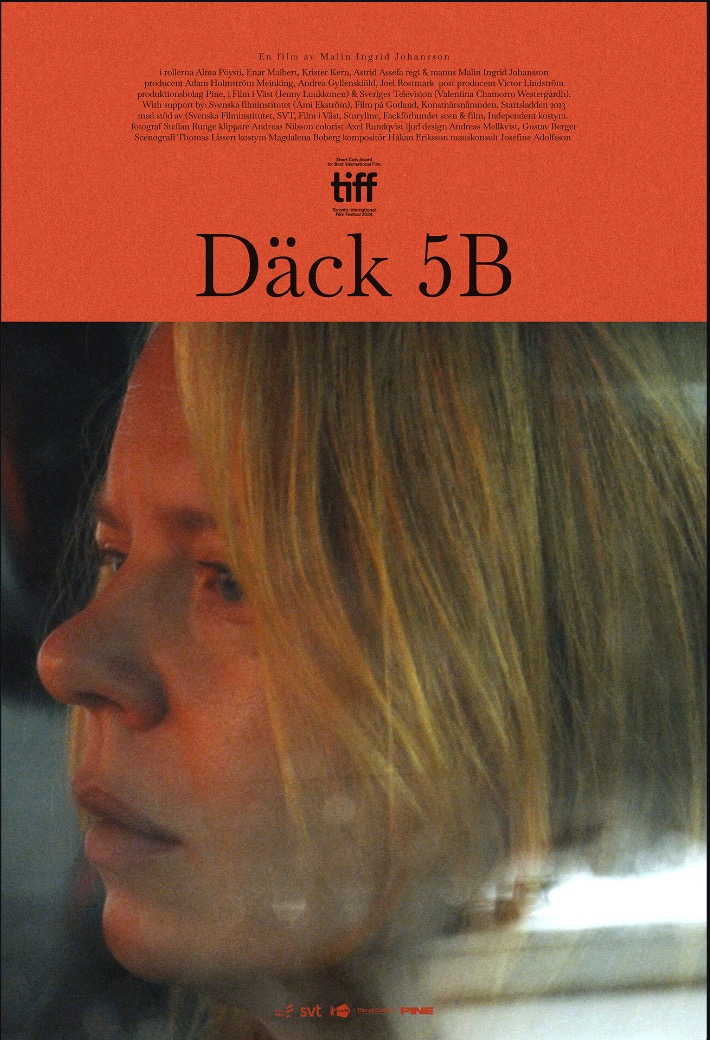
Oscar Qualifying Short Film Review “Over Mij”
WATCH THE TRAILER HERE
First, the Recap:
What is kept undisclosed. It would be nice to believe that in all efforts we make to achieve a positive path in life, paired with an overall sense of purpose and good intent in HOW we accomplish that which we strive for, having to maintain anything hidden would be absolutely unnecessary. But, let’s be candid–we are only human. Not as an excuse, but more as that basic actuality that dictates we WILL make mistakes, we WILL err. Then, it becomes the way in which we choose to handle it that defines the outcome, made harder when it comes to family, honor, and tradition. A young 17-year old girl named Fatima (Mayra Pitambersingh) travels to a local hospital with her father Ahmed (Alan Yadegarian) with a pre-established goal in mind. Or at least that’s what one of them believes while the other knows differently. Will secrets remain or be revealed?
Next, my Mind:
Over the course of this current and building competitive festival and theatrical cinema season that is soon coming upon its ultimate climax via the 96th Annual Academy Awards in March of 2024, I have had the much-treasured honor of being among the critics provided opportunity to watch and offer thoughts on what are presently a multitude of long-listed Oscar qualifying live action short films vying for a coveted short list selection and then, ideally, an official nomination. Experience has taught me that while ALL the films witnessed during this year’s crop are undeniably professional, socially aware, filled with talent, and worthy of notice, it stands to reason some manage to rise above the others for me as should at least be anticipated. When it comes to this 15-minute effort from writer/director Ali Asgari and producer Maryam Tarami, the truth is it did not end up as one of those projects that stood out for me to the same level as many others.
Mind you, it isn’t remotely about LACK of any grander qualities I mentioned above, as those ARE all utilized to excellent magnitudes, but more so what I felt was just the absence of a deeper, more overtly prominent, emotionally engaging resonance that leaves the lasting impression on you long after the credits have since passed. Finding its focus through a narrative that sees a young Muslim teen girl from a highly conventional Islamic family who places a nurse she’s seeing at a hospital in both a moral and ethical conundrum when choosing to divulge a secret that could shatter the accompanying father’s (and for that matter family’s) view of his daughter and her future, the film’s INTENT and objectives which thematically explore the notions of honoring religious belief, societal/cultural custom, familial dignity, and one’s own oath vs. simply having compassion and empathy for another human being in crisis ARE clearly addressed with effectiveness, no question.
But, again, for this critic anyway, even when we arrive at the key moment of revelation, it just wasn’t an instance that FELT like some huge surprise, as there is at minimum a good sense of already, even if just potentially, KNOWING what said unveiling is related to and/or will be. That’s what ultimately stole my own affecting, immersive connection with the narrative and its yearned for ability to have truly GRABBED me wholeheartedly. Now, what I DID completely appreciate and wholly acknowledge is the conveying of acts of kindness being offered, that aforementioned sympathy and willingness to do what we can to help out someone else, and how that could have a far better impact on someone’s circumstances, which the film’s finale does offer in an uncomplicated and touching moment that speaks volumes to this without a single word uttered. It transcends ALL religion and societal convention, and illustrates what this world just needs more of.
Pitambersingh provides a very solid performance here as another example of an actress utilizing understatement and purposefully veiled emotional presence to represent the character’s plight through her role as Fatima, a young teen girl form a very standard Muslim family whose life is about to change radically due to an upcoming commitment that requires her to “pass” a specific test for the sake of ceremony, practice, and family respect. Taken to the local hospital by her father, the pair have no idea that one of them has a completely different notion about what is to happen–or NOT happen and the ensuing interactions with the nurse taking Fatima’s appointment turns into a battle between unshakable professional duty vs. the perspective of the heart towards a person in need. The decision to come is what will dictate Fatima’s immediate state of being, and the actress does a fine job with the subtlety and quietly conveyed inner storm the character faces.
Yadegarian likewise presents another study in muted intensity through his turn as Fatima’s father, Ahmed, whose sole intent is to get his daughter to the hospital post haste in order to have what’s needed taken care of quickly and to his liking to ensure the family’s integrity remains intact for his daughter’s upcoming event. Definitively straight-forward and somewhat defiantly adamant with the nurse who’s treating Fatima, his very conspicuously stern, unwavering demeanor is both understandable and intimidating, also initially having issue when first being advised they’d be seeing a male doctor. Again, it’s a lesson in recognized religious conformity being challenged by the rest of the world’s ideas and viewpoints of things, which honestly could be said about ANY religion, and therefore I did appreciate how Yadegarian’s performance made you FEEL that struggle in a manner that perfectly suited the narrative, even if portrayed with that suppressed energy.
The main supporting role arrives via Winnie Augustus as the nurse Fatima is seen by and who finds herself in an unanticipated situation that will test her job’s established obligations against her own personal convictions in seeing a young girl in both crisis of conscious and confronting actual potential harm. Yet a third role in the film that demands softened earnestness to display inner and outer storms one choice entails, Augustus very much manages to pull us in and experience the character’s quandary. Additional supporting roles arrive through Sanne Den Besten, Mahnaz Rahvareh, and Safak Karadeniz. So, in total, “Over Mij” successfully channels its messages with clear and concise design while tackling the ever-fluctuating nuances of how religion and personal choices impact our lives and those around us, especially family, while showcasing human solicitude DOES still exist. As stated prior, this critic just wished the emotive force and then its subsequent impact might have just been a little more pronounced.
STAR RATING (out of five):
As always, this is all for your consideration and comment. Until next time, thank you for reading!





